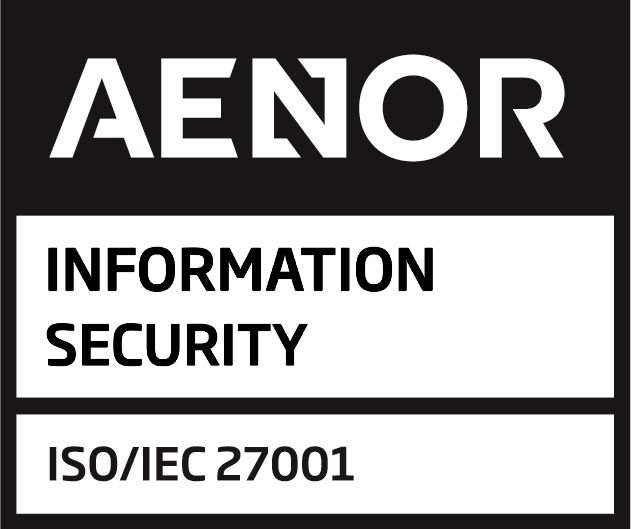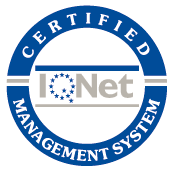* AND BONUS: 13 super ideas for recognition campaigns.

Recognition at work is one of the cornerstones in a company: it simply has to be there. All leading companies know this and a successful company will already be using recognition as part of their corporate strategy. Now, we’re not just talking about a bonus at the end of the year here. Read on to find out how you can innovate and create a recognition and rewards programme that will transform your business.
AND BONUS: discover campaign ideas that you can easily implement straight away.
Culture eats strategy for breakfast
You’ve probably heard this phrase somewhere before and maybe you already understand the importance of reinforcing your organisational culture. No company strategy will hold up if the culture within the company isn’t there to support it. Now, every company has its own culture, no two cultures will be the same, and one of the decisive factors in what your company culture will be like is who defines and drives it: is it the partners, the C-level or the management committee? More often than not, culture appears spontaneously. By the time you look, it’s already there: in the corridors, at company events, in working methods, in interactions with colleagues and clients, etc. And most of the time it will be very different to the culture described in your HR manual or in the ‘Work with us’ section of your website.
And that is where recognition comes in as a strategy. Many companies already have a system in place that incentivises and rewards employees for their achievements and results. If your company is one of these, then congratulations! However, if in addition to rewarding productivity, you also use incentives to reinforce the organisational culture of the company, then, kudos to you! We’re your biggest fan. You are definitely someone who understands the impact of recognition in a company. Your company strategy and culture can have a slap-up breakfast together!
If it is rewarded, it is repeated
Pavlov , Skinner and other theorists have already proven that incentives and stimuli impact behaviour. So we already know that if an action is rewarded, it will be repeated
Companies that are at the forefront of people management also know this, which is why they already use incentive programmes to reinforce their internal culture. With structured platforms, points programmes, campaigns, tracking reports, etc., they have it all in place. Yes, there is such a thing as a hierarchy of excellence in all this incentives business. And don’t think that this only happens in large organisations. True, there are many examples of large companies that rely on recognition to strengthen organisational culture, but it has also now reached SMES.
How can incentives reinforce organisational culture?
Let’s get down to business. After all, if you’ve read this far, it means you’re hoping we’ll give you some ideas and suggestions on how to use incentives to improve your organisational culture.
First things first: what is the culture you wish to strengthen?
I know, this is a tricky subject which could easily open up a Pandora’s box. So, before we go on, let’s presume that you are already clear about what defines your company culture. Remember that all cultures evolve. Using incentives as a strategy to support your existing internal culture can be just what is needed to drive new behaviours or actions within it. And, if you’re already working on an update in your existing culture, then come on, jump on the recognition and incentive programme bandwagon, today!
List TOP behaviours
Let’s get down to the nitty-gritty! This is going to be just like eating an elephant: it has to be done one bite at a time.
- Using the document where your company culture has been defined (if there is one), extract and list 10 behaviours or actions that reflect it. Write your list like the 10 Commandments; make them short, direct and clear.
- Now take the 5 behaviours/actions from this list which could have the greatest positive impact on your company. Bingo! You’ve got the ones you’re going to work on in your recognition and incentive programme.
Create your own system
For your strategy to work and impact your organisational culture, recognition or incentives need to be systematised as part of your modus operandi.
‘OMG! Just when I thought things couldn’t get worse, we now have to systemise. As if I didn’t already have enough to do.’ I bet something like this just crossed your mind. Now don’t deny it!. But systematisation is simply defining a way of working that is clear and simple for everyone. It should also not just be a one-off action, but long-lasting.
And there’s no need to panic! Turnkey incentive platforms offering you ready-to-use incentives already exist. These are usually quick to implement and need little management.Using recognition campaigns is the ideal way: assign an objective to each campaign, award a prize when this is reached and that’s it! Simple and effective. Here are some helpful pointers.
- Campaign duration: Use either one-off campaigns, with a start and end date, or ongoing campaigns. If you are trying to introduce something new, start with a short, one-off campaign. This will generate a sense of scarcity and people will be drawn to it like free ice cream on a hot summer’s day. Permanent campaigns can be applied to behaviours/actions that are easier to achieve or more frequently repeated. At the end we leave you some examples.
- Points programme: if your aim is to stimulate the repetition of behaviours aligned with your organisational culture, a points programme is your best option. This ‘doses’ the rewards. Repeating the actions leads to more points – and this creates what you are looking for: habit. More points means more and better rewards.
- Inclusive: if we’re talking about the culture, then everyone must be included and it is therefore crucial to reach 100% of the workforce. Specific campaigns can be created for middle management and other campaigns for the rest of your workforce. The best incentive platforms allow you to create targeted campaigns and give visibility to specific groups.
- Make it simple and easy: validating employee participation is important. To make this possible without its management driving you crazy, simply use a good incentives platform and decide which method to use: assign points automatically, through data and systems integration; semi-automatically, where a document such as an Excel is uploaded and the system then reports and assigns points; or let your employees themselves register their participation by submitting some kind of record, which is subsequently validated.
BONUS: 13 incentive ideas you may not have thought of, for a positive impact on your organisational culture
Here are some campaign ideas that promote and drive a company culture based on ownership, continuous improvement and excellence:
A sense of belonging
- Mentors for new recruits: existing employees become volunteer mentors for new recruits. Provide new employees with a second person to turn to during their first few weeks, in addition to their line manager. One for all and all for one.
- Brand promotion on social networks: employees who wear the company colours help spread its news and achievements. Encourage employees to be proud to show off the company they work for.
- Content creation: use your best creative writers to create the content for the company’s blog or social media accounts.
- Corporate events participation: Show appreciation for employees who participate in company events, especially when these are outside working hours. Any event is already a ‘gift’; but what is rewarded is the level of participation. Those who participate the most are likely to be among the most committed members of your team.
- Volunteers for company projects: from helping organise the mega Christmas social, to helping in charity initiatives. A little extra help always goes a long way, doesn’t it?
- Testimonials for the web and corporate social networks: the words of your current employees will be music to the ears of candidates who are interested in your company.
- Candidate referrals: in the fight for talent, referrals are worth gold, and a reward. Big companies, especially technology companies, already do this.
Continuous improvement
- Support in-house training: creating video tutorials or recording specific training to share on the company intranet is an excellent way to share the expertise of your company’s gurus.
- Peer coaching, mentoring and shadowing: reward volunteers for helping their peers reach peak performance.
Excellence
- Eagle eyes: reporting bugs or service failures is a task in which all employees can collaborate, regardless of their position.
- Ideas that are worth gold: employees can contribute ideas and improvements based on their own experiences; from management processes, to the products or services themselves.
- Mystery shopper: candidates testing and looking at your products and services with a keen Sherlock Holmes eye, provides you with a different perspective. This can be especially useful in the retail sector.
- Focus groups: participation in focus groups and other research conducted by the company is an excellent way to drive improvement.
Culture is everybody’s business
Changing or reinforcing the organisational culture of a company is not just a task for HR, Internal Communication or the Management Committee, it is everyone’s responsibility. Every opinion, behaviour and attitude counts. Everyone counts. Make strengthening company culture a project for all: explain it to your employees, get everyone involved, ask what they want to see more of, set an example, involve managers. Discussing the relationship between behaviour and reward isn’t big breaking news, but sometimes, it’s good to be reminded. Your key takeaway from this article should be to go further with your incentive programmes. Keep using them to drive results and productivity: go further, get better. A strong organisational culture is important, not only for employee engagement, but also for the growth of your company.







